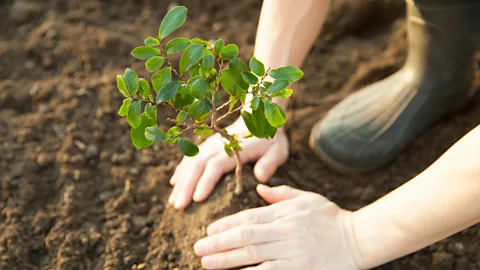- Advertisement -
PESHAWAR, Feb 22 (APP):Khyber Pakhtunkhwa has launched a large-scale spring plantation drive to combat deforestation and mitigate climate change.
The campaign, which spans from Chital to DI Khan and Kohistan to Waziristan, aims to plant 2.6 million saplings across the province.
Musawar Khan, the Special Assistant to the Chief Minister for Environment and Forests, highlighted that the initiative includes a variety of tree species, both regular and fruit-bearing.
In the Central-Southern Forest Region, around 892,000 saplings will be planted, while the Northern Forest Region will receive 1,057,000 saplings.
In Malakand, the target is 864,000 trees. Additionally, two million saplings will be distributed among the public for planting, while the Forest Department will directly plant 560,000 saplings.
Talking to APP, he said that Peshawar will see 82,544 saplings planted, along with 480,000 seasonal plants, which will be planted twice annually.
Key areas of plantation include Hayatabad, Regi Model Town, GT Road, Jamrud Road, Ring Road, Motorway, and Northern Bypass. Moreover, 1,300 climbers will be planted along the BRT flyovers and pillars.
In the last three years, Peshawar Development Authority (PDA) planted over 191,000 trees in the provincial capital.
Abdul Qadar, a plant seller at Tarnab-a hub of plants trade said that his business is booming during the spring season, with significant profits earned from sales of native and exotic plants.
However, Qadar cautioned that unfavorable weather and plant diseases could lead to financial losses for plant sellers.
The spring plantation season is not only beneficial for the environment but also provides a livelihood for around 1,000 workers employed at nurseries in Tarnab, Peshawar.
Many plant sellers, like Qadar, prioritize government and NGO orders, with demand also rising from the merged tribal districts, Malakand, and Hazara divisions.
Riaz Khan, a retired teacher from Nowshera, shared his personal experience of purchasing ornamental plants like Araucaria and Ganga Palm, which are in high demand but often unaffordable for many due to their steep prices.
He stressed the importance of the Forest Department providing affordable plants to the public to help counter the challenges posed by deforestation and climate change.
Hayat Ali, a Conservator at KP Forest Department, confirmed that millions of saplings are available for distribution across the province. The spring afforestation drive is being supported by various government departments, NGOs, farmers, and local communities.
The saplings, including ornamental species like Amaltas, Chambali, and Bottle Brush, as well as fruit plants such as Almond, Guava, and Peach, are being distributed in line with the campaign’s goals.
Muhammad Ibrahim Khan, Deputy Project Director of the 10 Billion Trees Afforestation Project, emphasized that the campaign is an effective strategy to combat climate change.
The initiative involves communities, schools, and the general public in plantation activities. Ibrahim also called on the media and religious scholars to further mobilize citizens for the cause, underlining that Pakistan is one of the top 10 countries most vulnerable to climate change.
He also pointed to the implementation of the provincial climate change policy, the rangeland policy, and the REDD+ strategy in Khyber Pakhtunkhwa. Experts have praised Pakistan’s efforts to promote a greener future and have urged the timely establishment of the COP 29 UN fund to support vulnerable nations like Pakistan in combating the impacts of climate change.
This widespread plantation campaign is a vital step toward improving environmental health, reducing deforestation, and tackling air pollution in Khyber Pakhtunkhwa especially in Peshawar.

